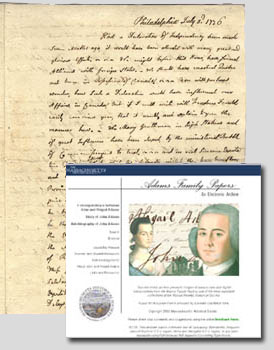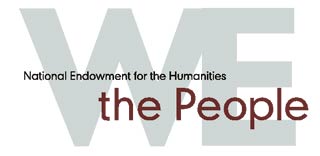Letter from John Adams to Abigail Adams, 3 July 1776

From the Adams Family Papers
The transcription of this letter is featured on the Adams Family Papers: An Electronic Archive website.
Online display of the letter.
"Posterity will tryumph"
Throughout his long absences while participating in the Continental Congress, John Adams has kept a close correspondence with his wife on topics ranging from family to farming to business to international politics, seeking her opinions as much as giving his own. Now, the point to which he has directed his efforts for so many months is at hand, and John writes home to Abigail his reaction to the great event.
Questions to Consider
1. What did John Adams envision might have happened if the Declaration had been passed sooner? What reasons does he give?
2. What does John Adams imagine will happen when the day of the declaration of independence is celebrated? Which day does he think it will be?
3. What is the meaning of the final line?
Further Exploration
4. This is the second letter which John wrote to Abigail on 3 July. Click here to read the first letter. Does this provide any more context for his letter or their relationship? What does Adams consider to be the beginning of the conflict? How well does this match with the your conclusions from studying this timeline?
5. What benefits has the delay in declaring independence brought, according to Adams? Do you see evidence in the other primary sources to support his statement? Cite the sources and explain how they support it.
Funding from the Massachusetts Society of the Cincinnati supported enhancements to this website.



